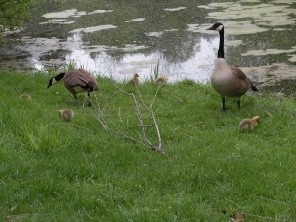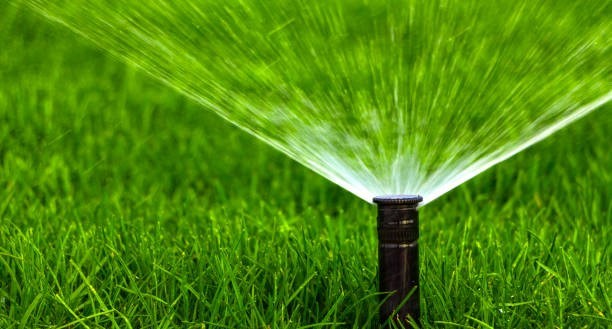Are you sick of goose poop covering your lawn? Plant a buffer of native grasses, flowers, and shrubs along your shoreline to keep them out! Geese are drawn to open spaces with short, well-fertilized grass, which provides them with a buffet of their favorite food and a sense of security with the ability to easily spot predators. Add water (your lake) to the mix, and you've created an easily accessible 'goose haven'. Taller, denser vegetation along the water's edge deters geese from accessing your lawn from the lake, encouraging them to move along in search of greener pastures.
The thicker the buffer, the more effective it will be. Not only do buffers discourage nuisance wildlife – they also provide a multitude of other benefits, including protecting your shoreline from erosion, improving water quality, and providing food and habitat for pollinators. You can use this helpful collection of technical resources, produced by the Minnesota DNR, to plan your buffer project. For more information, contact Breanna Keith, Water Resource Specialist, at Breanna.Keith@AnokaSWCD.




